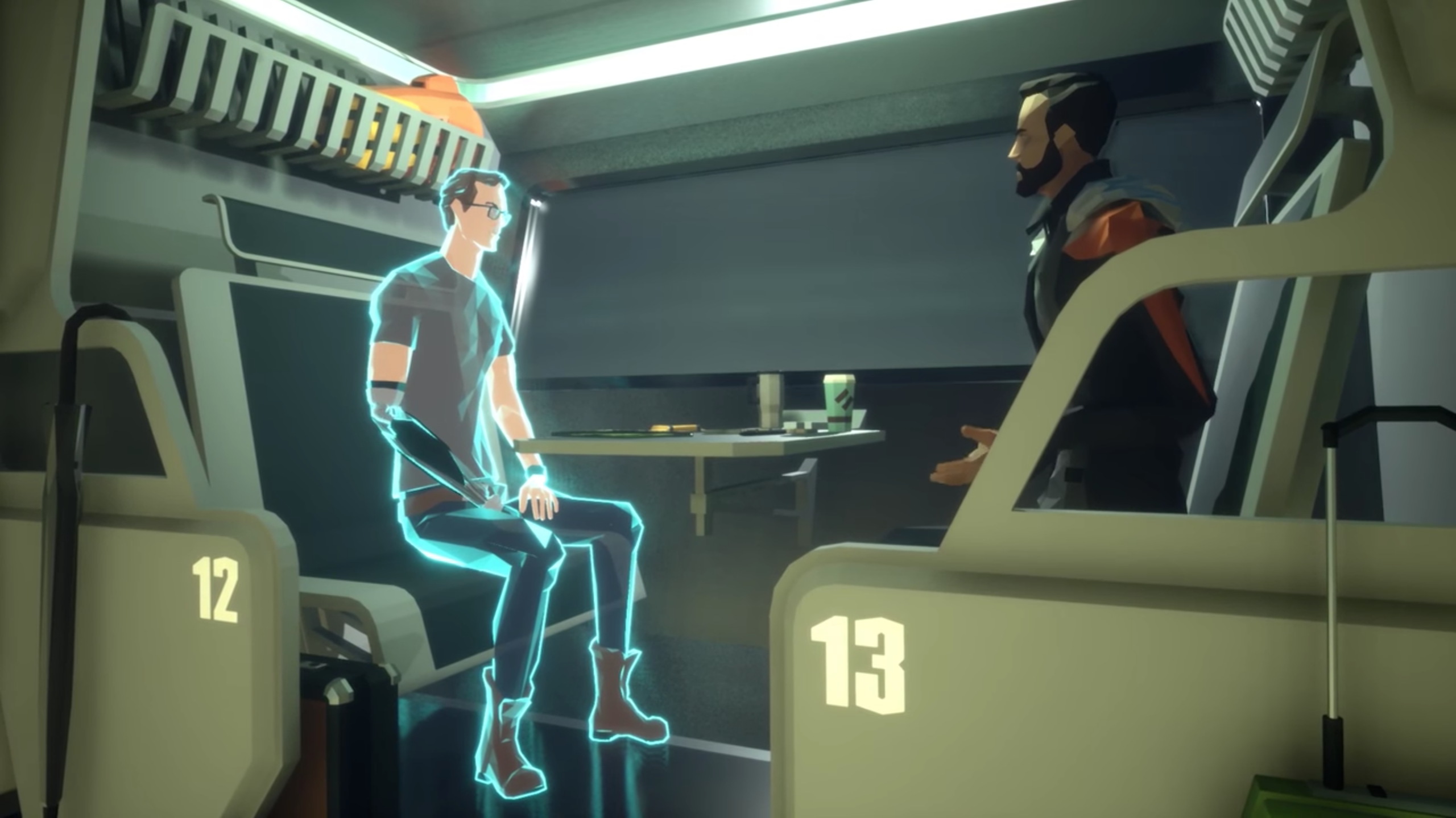State of Mind searches for the truth somewhere between dystopia and utopia, exploring the idea of transhumanism and whether it’s better to know an ugly truth or live a beautiful lie. The narrative adventure is Daedalic Entertainment‘s latest title, and it will be out on August 16 on PC and Switch.
In a hands-on demo at the 2018 Electronic Entertainment Expo (E3), I spent some time as as Adam, one of the six playable characters. I walked around a futuristic park with my wife, Amy, adjusting things to my liking – I could change the kind of music that was playing and add lights and fog to the environment. Unbeknownst to him, Adam is an uploaded consciousness in a utopian virtual world. He soon begins experiencing glitches in his reality, strange distortions and people who appear for a moment before vanishing. These are his first clue that everything isn’t what it seems to be – and it’s also how he gets in touch with Richard, who lives in the dystopian real world.

Unlock premium content and VIP community perks with GB M A X!
Join now to enjoy our free and premium membership perks.
![]()

![]()